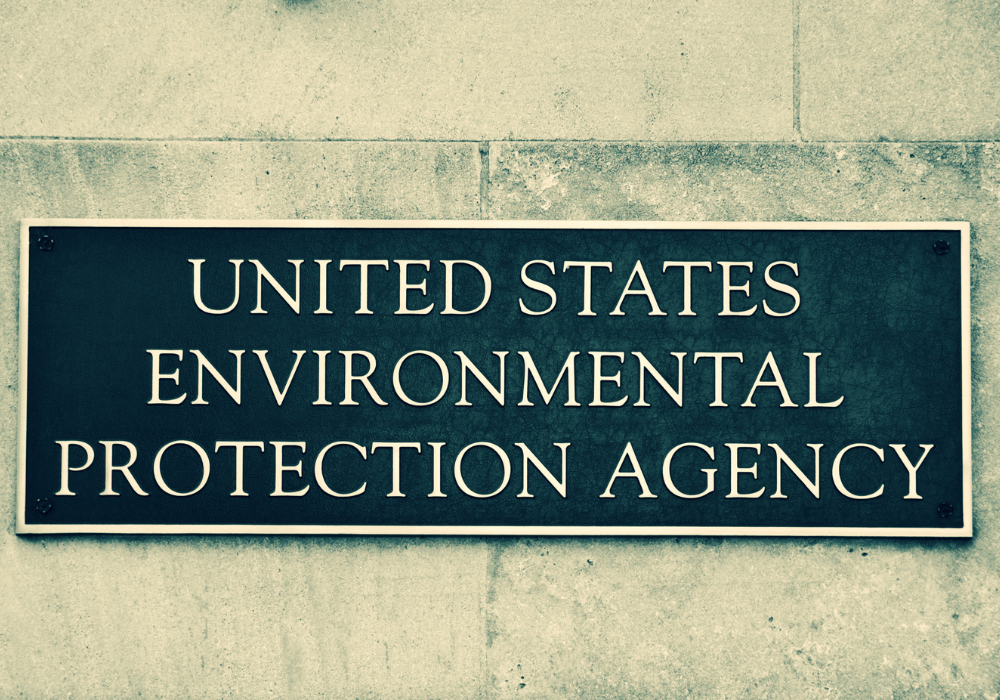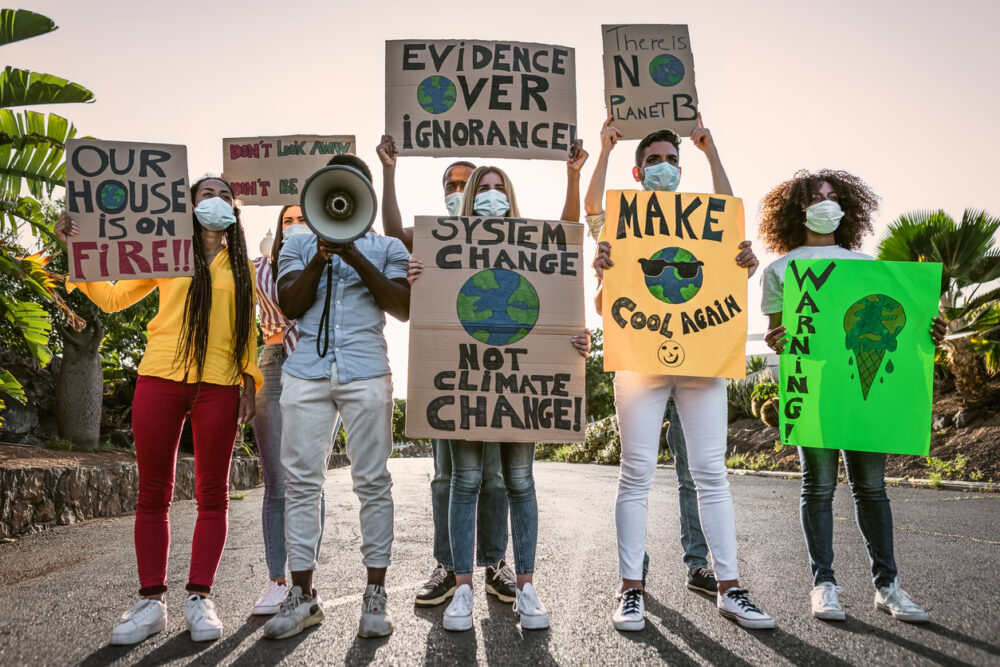A bold new proposal could overturn a key scientific finding—and climate experts say it’s a dangerous step backward.

In a move sending shockwaves through the scientific and environmental communities, the Environmental Protection Agency (EPA) is proposing to reconsider the legal foundation that allows it to regulate greenhouse gas emissions.
Known as the “endangerment finding,” this 2009 ruling declared that carbon dioxide and other heat-trapping gases pose a threat to public health and welfare—a finding that underpins nearly every federal climate policy. But now, according to a report by The New York Times, some officials within the EPA are pushing to overturn it, igniting fierce backlash from climate scientists, public health advocates, and even former agency insiders.
Critics say the effort isn’t about science—it’s about politics. If successful, it could unravel decades of climate action. Here’s why experts say this proposal isn’t just a rollback—it’s a direct assault on the science that protects our future.
1. The endangerment finding is the backbone of U.S. climate regulation.

The 2009 endangerment finding gave the EPA legal authority to regulate greenhouse gases under the Clean Air Act. Without it, policies like vehicle emissions standards, power plant limits, and industrial CO₂ caps would have no legal foundation. Overturning this finding would gut the EPA’s ability to take action on climate change at the federal level.
It would also signal to polluting industries that the government is backing off its role as climate watchdog. This finding didn’t just authorize climate action—it demanded it. If it falls, the EPA’s entire climate framework could collapse with it.
2. The EPA’s move could set off legal chaos across federal climate programs.

If the endangerment finding is overturned, it would throw existing climate policies into legal limbo. Courts have already upheld the finding as scientifically sound, and federal rules based on it have been in place for over a decade. Dismantling it now could open the door to lawsuits, delays, and regulatory paralysis.
Agencies like the Department of Transportation and Energy also base their emissions rules on the EPA’s authority. Suddenly stripping that authority could freeze climate rulemaking for years. The legal uncertainty would benefit polluters—and leave the public in limbo.
3. Leading climate scientists call the effort “a war on evidence.”

Scientists aren’t mincing words. “This is not a scientific debate—it’s a political stunt,” said Dr. Michael Mann, a climate scientist at the University of Pennsylvania. “The science behind the endangerment finding is even stronger now than it was in 2009.”
Since the original ruling, the global consensus on climate risk has only grown more robust, backed by thousands of peer-reviewed studies and six major reports from the Intergovernmental Panel on Climate Change (IPCC). And if politics can erase science once, what’s to stop it from doing so again? The result could be lasting damage to how scientific evidence is treated in all public policy.
4. The proposal ignores overwhelming evidence linking carbon emissions to health harms.

The endangerment finding isn’t just about climate—it’s about human health. Greenhouse gas emissions contribute to more extreme heat, longer allergy seasons, worsening wildfires, and poor air quality. These impacts are especially severe for children, seniors, and communities of color.
Dismissing this finding erases decades of research showing how carbon pollution fuels respiratory illness, cardiovascular problems, and heat-related deaths. Doctors, nurses, and health organizations have all supported strong climate policy because they see its impacts in their clinics. Weakening protections now puts vulnerable lives directly in harm’s way.
5. Industry lobbyists have long targeted the endangerment finding—and they’re finally gaining ground.

Big oil, gas, and coal companies have spent years lobbying to undo the endangerment finding, viewing it as a legal threat to their business models. With the current EPA leadership more aligned with industry interests, those efforts are gaining traction. Internal emails and public comments reveal fossil fuel lobbyists pushing hard for this rollback.
While these groups argue it’s about regulatory flexibility, critics say it’s really about profit over people. Environmental watchdogs are warning that this is just the first step in a broader deregulatory agenda. And once a precedent is set for reversing scientific rulings, the door opens wide for industry interference.
6. Former EPA officials warn this plan could irreparably damage the agency’s credibility.

Veterans of the EPA—under both Democratic and Republican administrations—are speaking out. “To attack the endangerment finding is to attack the agency’s core scientific integrity,” said Gina McCarthy, former EPA administrator and current climate advisor. “It would tell the public that facts don’t matter, and that’s a dangerous precedent.”
The EPA has long been considered a global leader in environmental science and policy. That erosion of trust can lead to public disengagement at a time when civic support is critical. Without credibility, even the EPA’s future warnings could fall on deaf ears.
7. It contradicts the overwhelming global consensus on climate risk.

The U.S. helped shape the very climate science it’s now threatening to discredit. The IPCC, NASA, NOAA, and thousands of independent scientists have repeatedly affirmed that greenhouse gases pose a serious, escalating threat. The World Health Organization has even declared climate change the single greatest health threat facing humanity.
Attempting to overturn the endangerment finding puts the U.S. at odds with virtually every major scientific institution worldwide. It also gives ammunition to countries resisting climate responsibility, who can now point to U.S. backsliding. The ripple effects could stall global momentum at a time when rapid coordination is essential.
8. It opens the door for future attacks on science-based protections.

The endangerment finding was based on rigorous, peer-reviewed science—not opinion. If the EPA can simply “reconsider” it based on political pressure or economic lobbying, then no scientific ruling is truly safe.
This opens the door to future rollbacks on everything from pesticide bans to clean water protections. It tells industries that inconvenient science can be reversed with enough influence. From here, environmental safeguards could be chipped away one “review” at a time. And the line between policy-making and propaganda would only get blurrier.
9. The climate crisis is accelerating—yet the EPA is looking backward.

From record-breaking heatwaves to rising sea levels, the evidence that climate change is real and intensifying is all around us. 2023 was one of the hottest years ever recorded, with devastating wildfires, floods, and droughts across the globe. Instead of rising to meet the moment, the EPA’s proposal feels like a step back into the past.
Critics argue it’s the wrong move at the worst possible time. Rather than dismantle the tools we have, many scientists say we should be strengthening them urgently. Time is running out, and we can’t afford to debate settled science.
10. Reversing the finding could weaken U.S. climate diplomacy on the world stage.

If the U.S. guts its own climate science, it risks losing credibility in global climate negotiations. Why would other nations commit to bold action if the world’s largest historical emitter is backing away from basic facts? Climate summits like COP rely on trust and mutual commitment.
Overturning the endangerment finding would send the opposite signal: that America’s climate policy is unreliable, vulnerable to reversal, and driven more by politics than science. Diplomatic partners may stop taking U.S. climate promises seriously. And once that trust is gone, rebuilding global cooperation could take years.
11. Americans overwhelmingly support stronger climate action—not less.

Poll after poll shows that the majority of Americans, across political lines, want action on climate change. Most people support clean energy, better air quality, and climate resilience. Overturning the endangerment finding runs counter to public will. It also ignores the economic opportunity tied to climate action—from green jobs to innovation in clean technology.
Lawmakers pushing this proposal are going against the tide of public opinion. If they succeed, it could spark backlash—and a renewed push for stronger, science-based leadership.